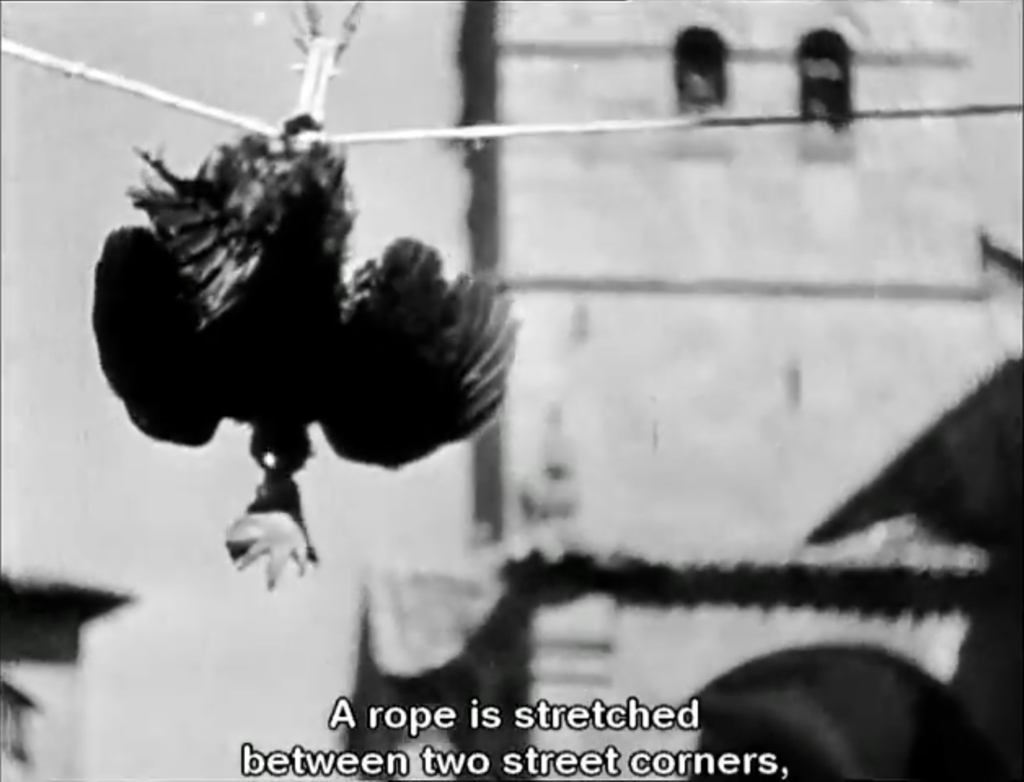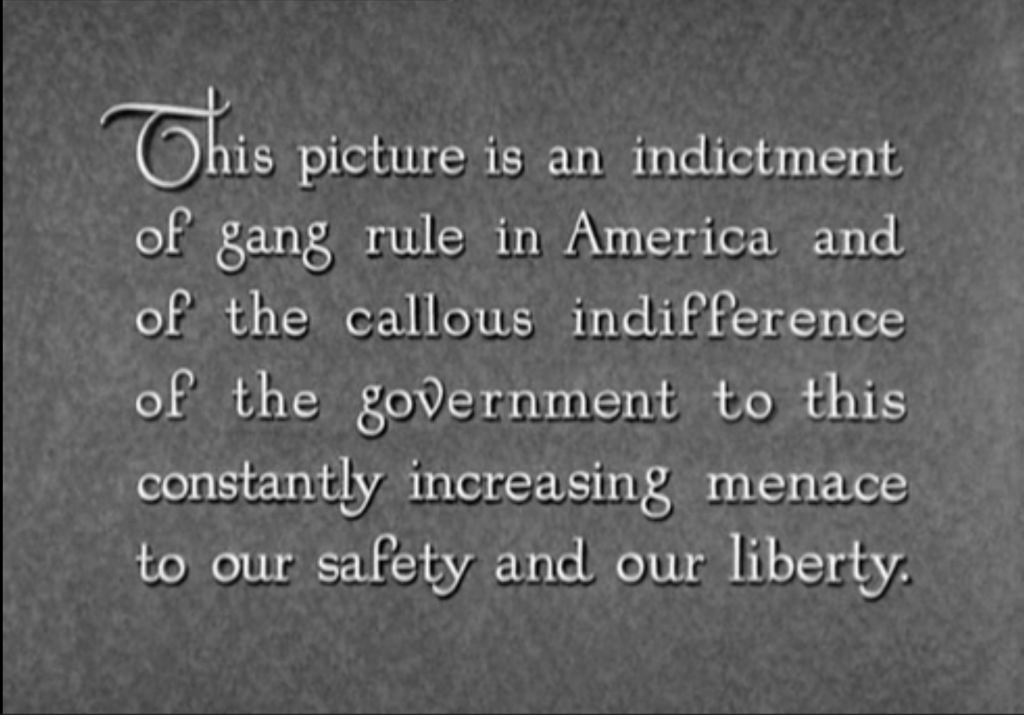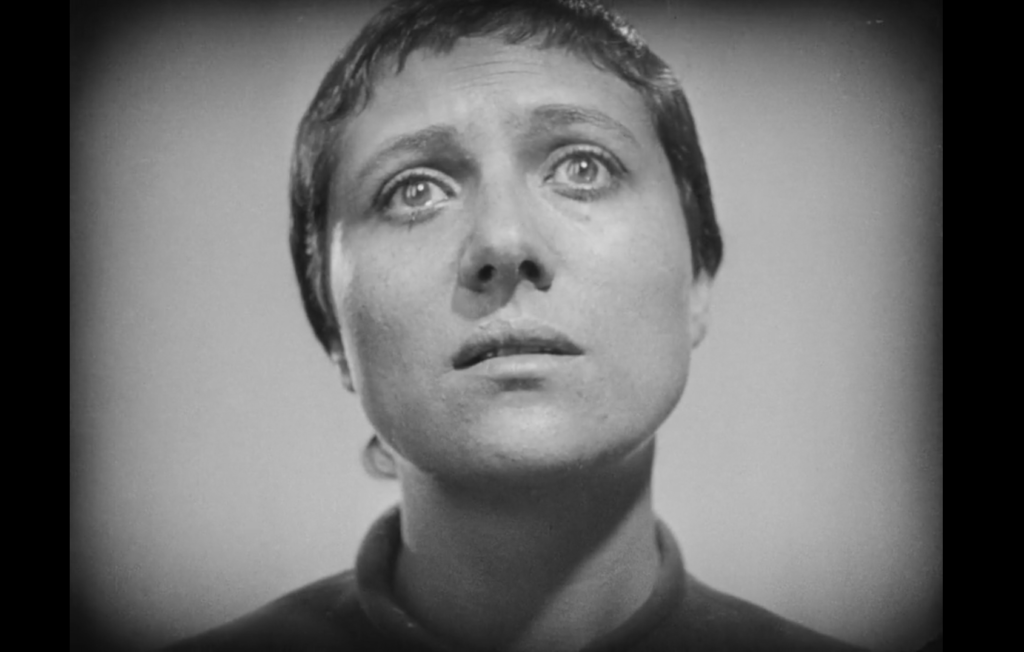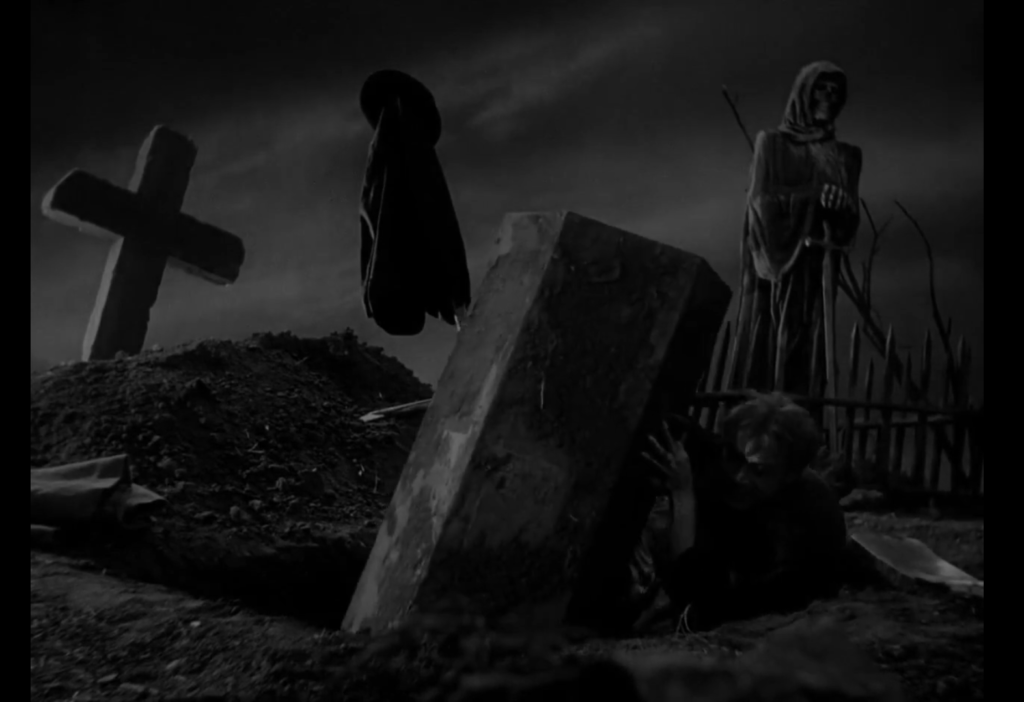INTRODUCTION
We move from the slow, ambling undead towards a new mode of flux. Away from the easily structured modernities, the fluorescent, clean buildings and the tinny red blood. We shall be cast from the murmurs, the drooling hedonistic masses; those so easy to avoid. We will find a new hunger, insatiable and violent. A physicality born from thoughtless material-gain. A literal breed of consumer. Organic consumer capitalists, grown from the land.
THE DEAD NEXT DOOR (1989)
We begin with a cult film, with cult elements. A new direction towards the consumer, the acceptance of such, people will consume and so it simply is, the fight is lost almost before the film has even begun. A concentration not on defence against the consumer, but on assimilation with their needs, their wants…their desires. A structured society that has a place for zombies.
Down through twisting rural roads, to the corner stores of suburbia and within the concrete metropolis’; the undead have become clutter, small fragments of a larger whole, littering the world, scraping and bashing into everything, consuming all they contact, an accepted virus. A world without blood cells of white, a world that has forgotten the possibility for protection and thus accepts. Sometimes, gratefully.
As with any formal society divides begin against ‘whatever-it-may-be’, those who are fine with, and those who are not fine with, extremists of left and right, with those on the fence only being consumed. To not make a decision is to be infected by a virus worse than death. The Zombie Squads replicate replace the police in this film, mobilizing and hunting vagrant biters, jay-walkers get shot down, undead squatters evicted with death.
“The thing’s head’s off its body for Christ’s sake, doesn’t it know that?”
No, it doesn’t, consume, consume, consume.
There is the opposite, as there always is, those against those who are for, protecting the zombie’s right to exist, to not be used and experimented on, to not be round up and controlled for gain of another. Surrounding squad-stations and government buildings, armed with placards and speeches, reminiscent of a counter-culture, hoards of protesters, a small mass infecting others with their own non-brand.
It can be just a brain. A literal brain, surrounded by its own mucus casing, a pulsating red vessel, void of all nutrition and stimulation, a mere gear to be turned by that which passes by, taking in and then…nothing. The brain becomes an organ of use, machinery to be utilized, plugged in and wired up to a system built with malicious intent, an ignorant capsule bowled at an economic circuit-board.
A slave-virus with one directive: to consume, or feed. If unfed the user will die, the virus, wholly its own, survives without the user. A malignant consumerist alien feeding on your soul until you die. It has no other objective. To use up, to spit out and continue. The sputum of humanity.
28 DAYS LATER (2002)
A medicinal beginning. Caged ancestors infected with rage, the archaic remnants of homo-sapiens locked away, animalistic behaviours behind lock & key. Descendants tied down and forced to watch the work of their worst offspring, plugged into direct-horrors, a brain-feed into the worst of a Race. The categorical begins to poke at our unconscious, the chained Id tested and vulnerable. The outside seeps in, a thin quiet mist of infinite enters, with the purpose of evolutionary deconstruction: animality unbound.
To avoid the terror one must destroy feeling. To avoid the reality one must become a new. To avoid reality one must consume. Coma or not one has to awaken in a new world. Lost and alone, attempting to find real people, subtle, nuanced, 3 dimensional humans who still have Being. To move freely in a city without a bump, money strewn, food a plenty, survival a mere gimmick against trinkets and toys.
THE END IS NIGH. A repetition of any apocalypse, except, the apocalypse came and went, no one noticed; the time to invest in death. The churches reverse into themselves, Hell is overcrowded so they burst up and into the sacred. Temples now breeding grounds, disease centres, concentrated spaces of the Antichrists’ brethren. The priest walks out, a saviour in the dark, and as he comes into the light his bones become not his, his muscles flare and his teeth expand, hope is lost, you are nowhere and no one is coming.
To run from salvation is the step before the endless. One must re-enter the underground, meaning only exists when something is there to give it such, but if one is too pre-occupied with simple survival, then the environment simply becomes objects within space. Homo-sapiens occupying a world void of meaning, chased from their own minds by an empty hoard.
“Plans are pointless, staying alive is as good as it gets.”
A small glimmer of life atop a new tower, the last remaining kernel of human life resides in a grey block amidst a desert of hollow beings. Trolleys meant for collecting stacked 10 high, once used by the undead to consume more & more, now used by the living to defend themselves. A barrier of consumerist memories.
A simple visit to a food store, one time, for survival is as good as it gets, necessities only, then, into flux, mobility and survival, always. Mental survival, the ability to disallow the infection in, not even as thought, to kill a consumer is to kill nothing, it is to shoot the air. The undead die, nothing changes. An empty death for an empty existence. The roof a wash with empty buckets, the living get handed nothing, for the world is not theirs. The world is no longer alive.
Watching the horses frolic, alive in their own world, Frank watches intently, the image a temporary vaccine against the undead. The grass a colour known only to the living, the breeze a temperature felt by those who can feel and the sky existing only for those who know what it’s like to exist.
A single drop of the virus and one shall turn, the most loving and compassionate human will change in an instant. Now the loving has gone and one must feed. Family, friend, both only a thing to be consumed, something to be used only to prolong one’s own life. Narcissistic entities existing in a perpetual empty landscape.
The virus is contagious anew. Virus-assimilation via proximity, to live within the world of the undead one has to become part-undead. It can take you over, you get a consumerist lust, the supposed wants and needs infect your mind, and so you turn, and you justify your cause, until you can do so no longer.
DAWN OF THE DEAD (REMAKE, 2004)
Time has passed since the original mall, the mall of Americana, the tubular bright lights, the advert jingles, the colours found only in certain eras. Gone are the rambles and bored groans of green-tinted zombies, the tongue-in-cheek humour, the possibility of friendship. Welcome to the new improved zombie, the consumerist 2.0, one whose memories never were, and if they were, they were implanted.
An idyllic neighbourhood, the perfect job, the protector of the community, the children, the fitness, the sport and the caring. All infected beyond return. The virus shall inherit values, it shall evolve morality into its own being. It shall take what you know to be true, destroy it, blend it into a phlegm-paste and force-feed you with it. And until you beg for more, until you either die, or beg to eat shit, the virus shall not stop.
A return to the familiar, the Mall, the transcendent home of the consumer, building as encapsulation of intent: we know you think you want to consume, so we made a place to reinforce your belief. The undead run this time, their thirst for the original is energized. The hunger more insatiable, the hoards larger, the uncontrollable hedonism, the ignorance sprayed.
“Why’d you think they come here?”
“Memory maybe, instinct, maybe they’re coming for us.”
Perhaps the virus is airborne, for these humans seem dumb, ignorance towards the intent of others, the belief that those that do not know, in fact do know. The belief that everything might end up OK, the belief that there will be an end that they can conceive, the belief that, in short, the world is still theirs.
There’s another, aside from the group, a street over, atop a roof. “May as well be on the moon.”. The alive are so few. Originality is an impossibility. To find another amongst the mess of the unthinking. One shall only see new possibilities from afar, what is possible is out of reach, to attempt anything new, original or lifelike is to risk death. Before you reach an idea to be spread, the many shall eat you whole. If you ever even think of trying something, the skin shall be ripped from your bones, like gum from the underside of a school-desk.
“When there is no more room in hell, the dead shall walk the earth.”
The evolution takes place under the noses of the alive. An undead mother giving birth to an undead child. A human-turned-consumer giving birth to a little consumer child. There’s no longer need for a virus, with this mutation, we have become a virus. From spawn we need falsities. From birth we are anchored to a nothingness of our own creation. Torn from the womb and cast into a sprawling slum of narcissism, greed, guilt, plastic, chemicals, imprints, replication, simulacrums, chambers, systems and structures. Hope does not want us.
One has to become sporadic, reach for an organic weaponization, strive for a fusion of nomadic-survivability, turn to possibilities oceanic in scale, turn to realities larger than clusters. Grow shields for limbs, our organs must turn liquid and flow into the channels of the like-minded. We must, at all costs, accelerate evolution. To avoid becoming a zombie, first one must truly not want to become one, not even glimpse at the possibility of an undead existence. One shy look towards the life of a consumer and one has already turned.
Please follow me on Twitter here: https://twitter.com/meta_nomad
Read More
















